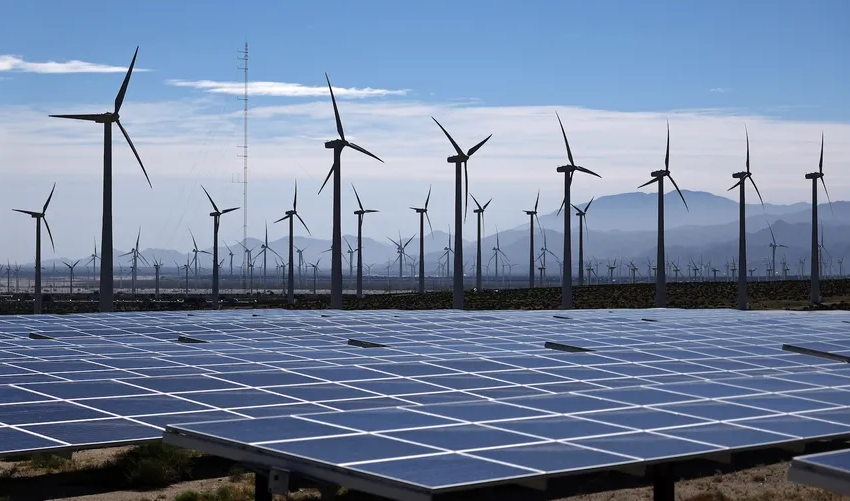U.S. Crude Daily Average Production Falls in December as Bakken Leads Pullback
Nigeria Ranks as Africa’s Fifth-Largest Solar Installer in 2024 with 73MW Capacity

Nigeria, Africa’s most populous nation, became the continent’s fifth-largest solar installer in 2024, boasting a total installed capacity of 73 megawatts (MW), according to a recent industry report. This growth is attributed to the removal of petrol subsidies, which has accelerated solar adoption in a country where residential and off-grid systems are predominant.
The Nigerian federal government eliminated petrol subsidies in May 2023, causing fuel prices to soar. This shift has made solar energy a more appealing option for both businesses and households. According to the Global Solar Council, the move has significantly driven the uptake of solar power across the country.
“Despite Nigeria securing a spot among the top 10 solar PV installers with 73 MW of new capacity in 2024, this figure may be underestimated due to the significant share of non-utility solar installations, such as private and commercial rooftop systems, which are harder to track,” the report stated.
Despite historically low utility-scale solar development, Nigeria is witnessing a transformation. The Kebbi state government has allocated 200 hectares for a 5.6 GW solar power plant, while the Lafia and Gombe solar parks are expected to contribute up to 600 MW by 2028. Meanwhile, Mali is also emerging as a key player, potentially becoming a gigawatt (GW) market in the same period.
The rise in solar adoption in Nigeria reflects broader trends across Africa, where rising power prices and frequent electricity blackouts have spurred residential and commercial solar installations.
“There is often a corresponding rise in residential PV installations as a solution to frequent electricity blackouts,” the report highlighted.
Recent electricity tariff increases in Nigeria, aimed at reducing subsidies, have further incentivised consumers to switch to solar energy. This trend mirrors developments in countries like South Africa and Mauritius, where similar measures have boosted solar adoption.
Off-grid solar systems, such as solar home systems, are playing an increasingly significant role in Nigeria. Between 2020 and 2022, off-grid solar accounted for 55% of new electricity connections in sub-Saharan Africa, with Nigeria leading the charge. Rising fuel costs and initiatives like the Nigeria Electrification Programme have driven sales of these systems.
As of 2024, Nigeria’s cumulative installed solar capacity stands at 385.7 MW. However, the International Renewable Energy Agency (IRENA) estimates that the country’s solar potential remains largely untapped. If just 1% of suitable land were utilised for solar projects, Nigeria could generate up to 210 GW of solar energy.
The commercial and industrial (C&I) solar sector is growing swiftly, with projected installations expected to reach between 494 MW and 1,457 MW by 2025. Under a medium-growth scenario, Nigeria could add over 550 MW of new solar capacity between 2025 and 2029.
Utility-scale solar development in Nigeria faces hurdles due to weak grid infrastructure. Although the Nigeria Green Vision (30:30:30) initiative aims for 5 GW of solar by 2030 and 25 GW by 2050, progress has been sluggish. Plans for 14 new solar farms in northern and central Nigeria, which could generate 20% of the country’s grid capacity, have been delayed due to the government’s reluctance to provide essential guarantees to developers.
Nigeria’s regulatory framework has been instrumental in fostering solar energy growth. The National Renewable Energy and Energy Efficiency Policy (NREEEP), introduced in 2015, set ambitious renewable energy targets, aiming for solar to contribute 6% of electricity generation by 2030. The Nigerian Electricity Regulatory Commission (NERC) has also updated its mini-grid regulations to promote electrification in rural and underserved areas.
The Renewable Energy Master Plan (REMP) outlines a target of 500 MW of solar PV by 2025, with renewable electricity expected to account for 23% of generation by 2025 and 36% by 2030. Key incentives, including import duty exemptions, tax credits, and preferential loans for renewable energy, have further bolstered the sector’s expansion.
The report concludes that Nigeria’s growing adoption of solar energy is still in its early stages. With significant untapped potential and supportive policies, the country is poised to become a major player in Africa’s renewable energy landscape.






